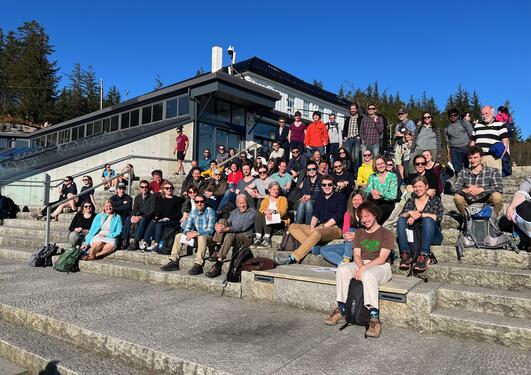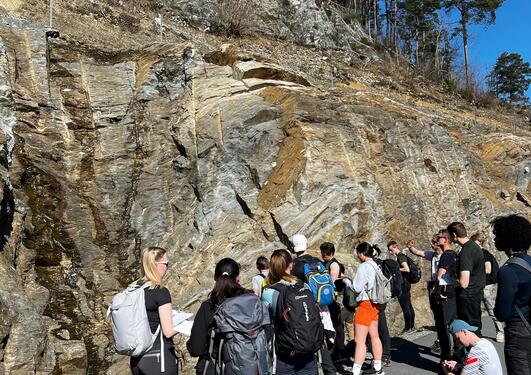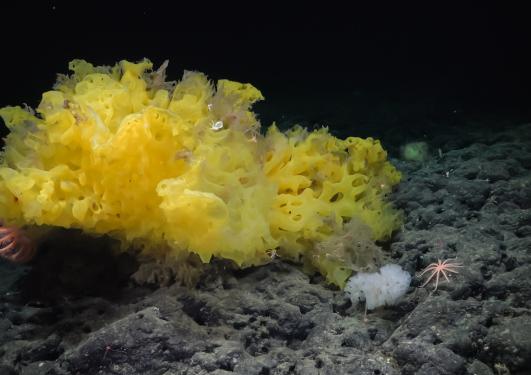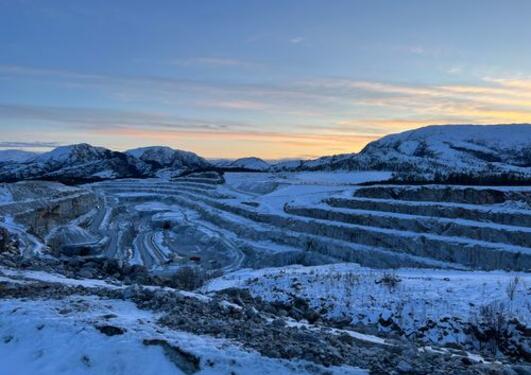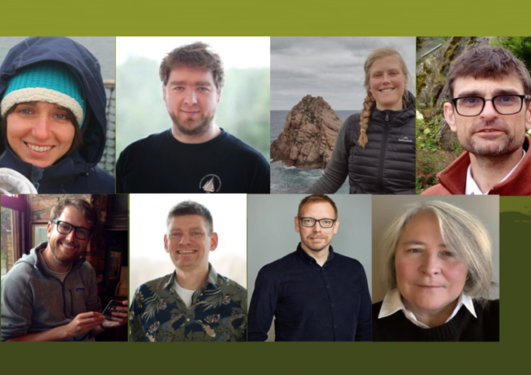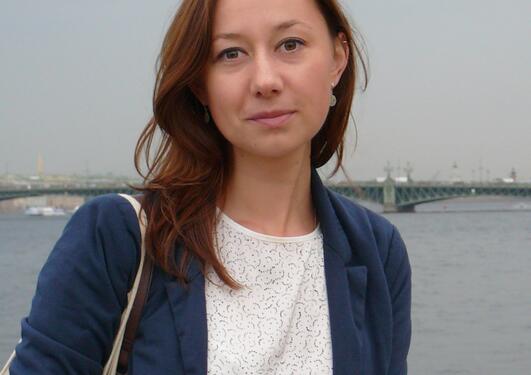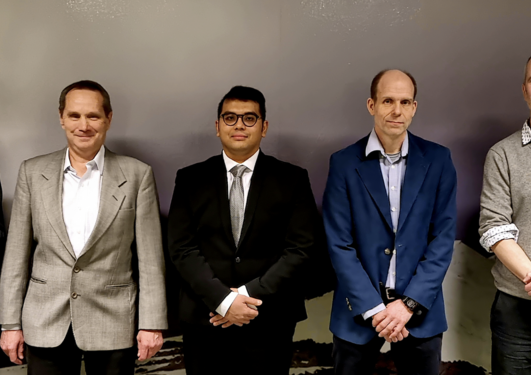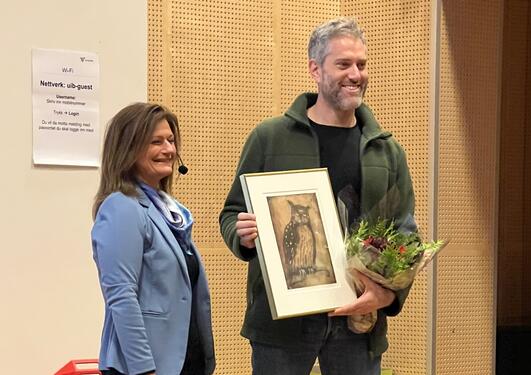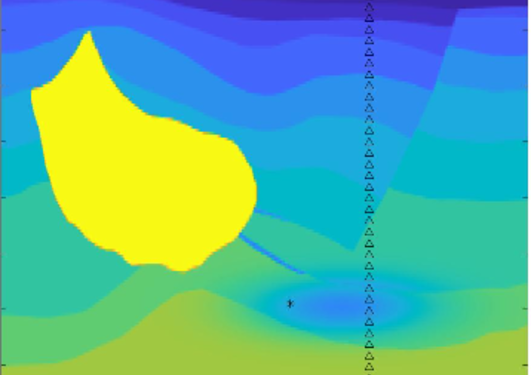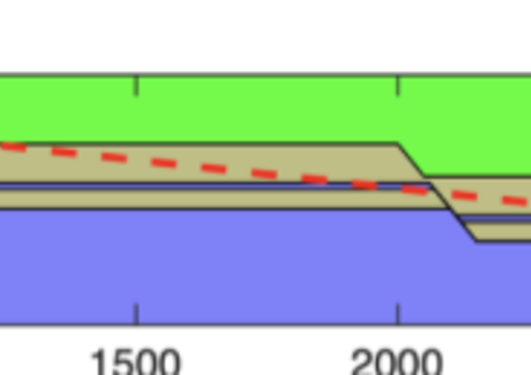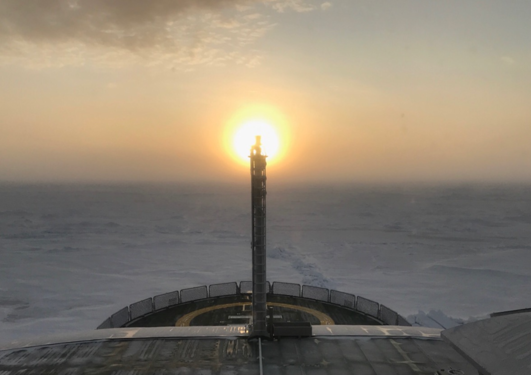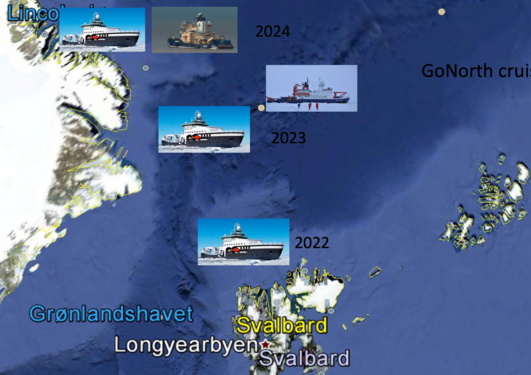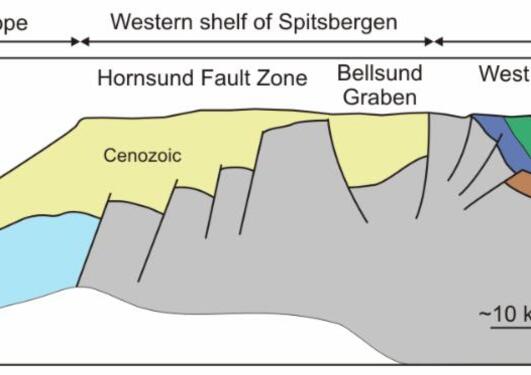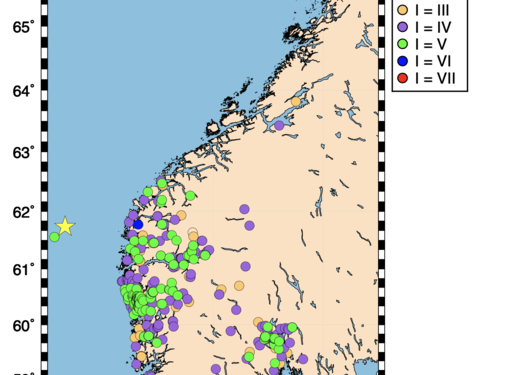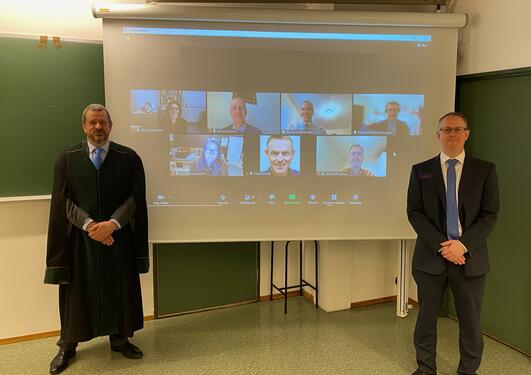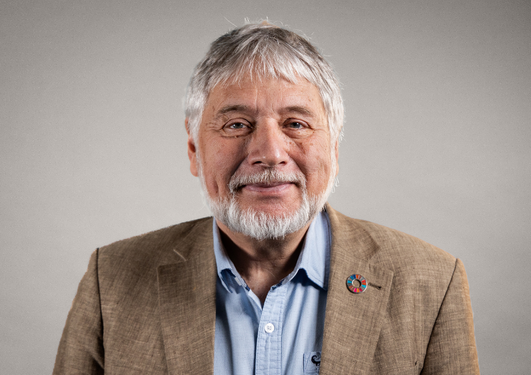News archive for Department of Earth Science
Last week, the Department of Earth Science hosted a successful workshop on "Greenland ice sheet stability: lessons from the past". The workshop attracted 70 international participants from various disciplines and institutions. The main goal of the workshop was to foster interdisciplinary collaboration and exchange of ideas on the past, present and future of the Greenland ice sheet.
The second week in April the DeepReservoir team was in the
Ravenglass Estuary just north of Liverpool, with project partners from AkerBP,
Equinor and the Universities of Oslo, Delft and Liverpool.
17.-20. April the field part of GEOV102 was held in fantastic weather at Herdla and at Ulven. Eager students have worked independently in the field and have logged sediment profiles, studied beach deposits, collected georadar data, taken sediment cores and carried out structural geological mapping at Ulven.
Seabed Mining and Biodiversity Conservation in the Deep Sea: Where Science meets Policy (30.03.2023)
Deep seabed mining is coming closer to a reality, presumably motivated by the need for rare metals. In this lecture Lisa A. Levin, from the Scripps Institution of Oceanography, will highlight the deep-sea ecosystems being targeted for seabed mining, their biodiversity and why it matters, potential threats and management challenges.
Bachelor student Andrea, is in her last semester of her bachelor's degree in geology at department of Earth Science, UiB. She says: "I'm one of the two lucky ones who got an internship at Brønnøy Kalk".
Francesca vulcano and her coworkers have been awarded the 2022 best article award from FEMS microbiology ecology. The article investigates the evolution and adaptation to different environments of anaerobic methane oxidizing Archaea.
On Thursday 19 January Hasbi Ash Shiddiqi successfully defended his PhD thesis. The title of his thesis is 'Intraplate Earthquakes in Nordland, Northern Norway- Insight from Seismic Tomography and Seismicity Analysis'.
The Owl Prize, UiB's internal award for educational quality, is awarded to Bjarte Hannisdal and the course GEOV114.
The VISTA centre is a multidisciplinary research centre funded by the Norwegian Academy of Science and Letters.
The geophysics group is involved in the Centre for Excellent Innovation (SFI) DigiWells
An international team of researchers, including Eoghan P. Reeves of the Department of Earth Science and Centre for Deep Sea Research, has this week in Nature Communications published its first findings on the geological and geochemical setting of the Aurora hydrothermal vent system, the first seafloor hot springs located ~4km under thick Arctic sea ice.
The geophysics group (Rolf Mjelde) has been involved in GoNorth. GoNorth (Geosciences in the Northern Arctic) is a Norwegian geoscience project for exploration of The Arctic Ocean. 13 Norwegian institutions participate, and work is being done towards establishing wide international collaboration.
The Svalex course was run from 2001 to 2014. The geophysics group has been an active contributor to this course.
On 21 March a relatively strong earthquake happened just off the coast of Bergen. This event was felt in large parts of Norway.
Ten geophysics bachelor and master students participated in a field course in Kiel (Germany) in August.
On 15 December 2021 Kristian Jensen successfully defended his thesis on seismic modeling and imaging.
Climate scientist Eystein Jansen has been elected Vice President of the European Research Council (ERC). He is the first Norwegian researcher to join the leadership of the elite division for European research.
Pages
- December 2025 (3)
- November 2025 (1)
- October 2025 (4)
- September 2025 (1)
- August 2025 (1)
- February 2025 (3)
- January 2025 (1)
- December 2024 (1)
- November 2024 (1)
- October 2024 (3)
- September 2024 (4)
- August 2024 (2)
- July 2024 (3)
- June 2024 (2)
- April 2024 (3)
- March 2024 (1)
- February 2024 (2)
- December 2023 (2)
- November 2023 (4)
- October 2023 (2)
- September 2023 (1)
- August 2023 (3)
- July 2023 (4)
- June 2023 (1)
- April 2023 (4)
- March 2023 (2)
- February 2023 (1)
- January 2023 (2)
- December 2022 (1)
- November 2022 (8)
- October 2022 (1)
- August 2022 (2)
- June 2022 (6)
- May 2022 (1)
- April 2022 (1)
- March 2022 (3)
- February 2022 (2)
- December 2021 (2)
- November 2021 (2)
- October 2021 (1)
- September 2021 (2)
- July 2021 (1)
- June 2021 (9)
- May 2021 (1)
- February 2021 (1)
- September 2020 (2)
- June 2020 (2)
- May 2020 (1)
- April 2020 (2)
- November 2019 (1)
- October 2019 (1)
- April 2019 (1)
- February 2019 (4)
- January 2019 (2)
- December 2018 (1)
- October 2018 (6)
- June 2018 (3)
- March 2018 (1)
- February 2018 (1)
- January 2018 (2)
- December 2017 (2)
- November 2017 (4)
- October 2017 (3)
- September 2017 (1)
- July 2017 (1)
- May 2017 (1)
- March 2017 (1)
- February 2017 (1)
- January 2017 (2)
- December 2016 (1)
- November 2016 (1)
- October 2016 (2)
- September 2016 (2)
- August 2016 (1)
- June 2016 (3)
- May 2016 (3)
- April 2016 (1)
- March 2016 (1)
- January 2016 (1)
- November 2015 (2)
- October 2015 (3)
- June 2015 (2)
- May 2015 (1)
- March 2015 (1)
- February 2015 (1)
- November 2014 (1)
- October 2014 (4)
- May 2014 (2)
- March 2014 (1)
- January 2014 (1)
- December 2013 (4)
- November 2013 (1)
- October 2013 (5)
- August 2013 (1)
- June 2013 (1)
- May 2013 (2)
- April 2013 (2)
- February 2013 (1)
- January 2013 (3)
- December 2012 (1)
- October 2012 (1)
- September 2012 (1)
- August 2012 (1)
- March 2012 (1)
- January 2012 (1)
- December 2011 (2)
- November 2011 (5)
- October 2011 (4)
- September 2011 (6)
- July 2011 (3)
- June 2011 (6)
- May 2011 (4)
- April 2011 (2)
- March 2011 (5)
- February 2011 (2)
- January 2011 (1)
- December 2010 (2)
- November 2010 (3)
- October 2010 (2)
- September 2010 (1)
- June 2010 (4)
- May 2010 (2)
- April 2010 (3)
- March 2010 (3)
- February 2010 (3)
- January 2010 (3)
- September 2009 (1)
- August 2009 (2)
- July 2009 (1)
- June 2009 (4)
- March 2009 (2)
- February 2009 (1)
- January 2009 (1)
